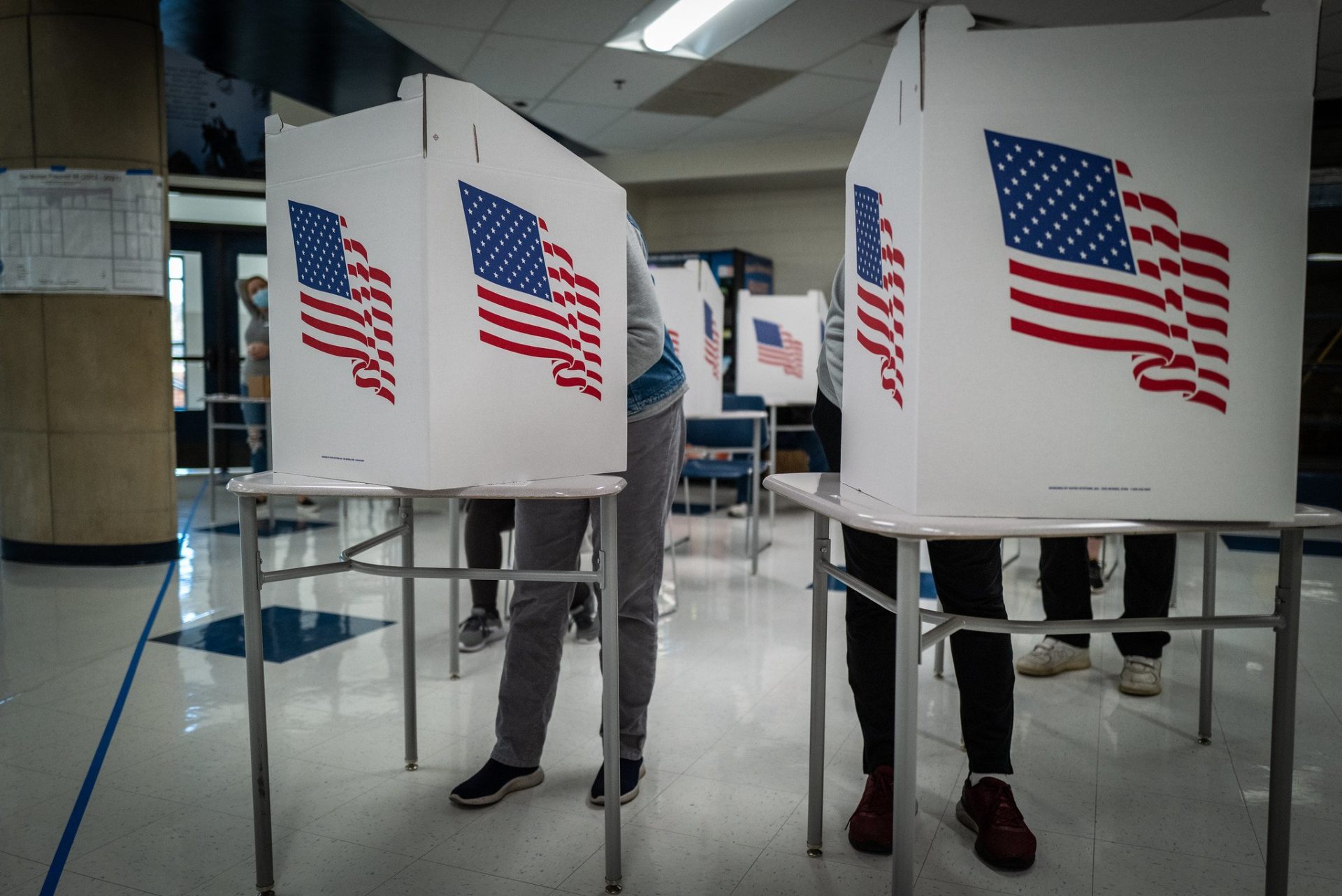
Hyper-partisanship and apathy. These are the two biggest forces keeping us from unlocking the full potential of America and staving off any further dalliance with authoritarianism. They are this generation’s version of stagflation, and they are two sides of the same coin. As one gets worse, so does the other.
Of the two, however, apathy is the true root problem because, without the apathy of the exhausted majority supplying oxygen to it, the wildfire of hyper-partisanship would be reduced to smoldering embers.
The famous author John Steinbeck once said: “We now face the danger, which in the past has been the most destructive to humans: success, plenty, comfort, and ever-increasing leisure. No dynamic people has ever survived these dangers.”
We often hear – and correctly so – how so many Americans are struggling paycheck to paycheck, how college is unaffordable, crushing college and personal debt, how the American Dream is out of reach for more and more Americans, the shrinking of the middle class, the 1% getting richer and the 99% getting poorer, etc. You’d think all of that would be a recipe for having the full attention of our citizenry when it comes to policy solutions to their problems, but instead, many Americans are tuned out.
Why? And if so, how do we fix it?
A few years ago, while I was out helping collect petitions for open primaries here in Florida, I had a conversation with another volunteer who stated that he believed that with all our modern conveniences like central A/C, smartphones, etc., even those of us that know our country has serious political problems have it too easy and comfortable to be really motivated to get involved to make change happen. In short, he said we are all too soft and too comfortable to take action.
I often think about that conversation. In my little slice of suburbia, I witness daily that most people are tuned out to politics and completely absorbed in their own lives. The population at-large, while it complains about politics and politicians from both parties, views politics as being as fixable as the weather. So, by their logic, why tilt at windmills?
And even on the off chance they believe politics can be fixed, they aren’t necessarily interested in how or doing the fixing themselves. Unless, of course, it’s something quick and easy that they can do with a small amount of money or a few clicks of their phone.
They aren’t interested in joining monthly ZOOM calls and going to meetings without knowing that a concrete result is going to come from it very soon after. They don’t want to face down hostile citizens while collecting petitions. They already see the two parties wasting their time and money, so they are very cautious about how they invest either time or money in potential solutions. I can’t blame them. I used to be one of them myself.
To put it another way, we’ve become a nation of consumers, and sadly far too many of our fellow citizens “consume” democracy instead of taking an active role in creating and preserving democracy. It’s a lot easier to let produce you buy at the grocery store spoil without getting around to using it than you would if you grew it yourself.
The sooner we can educate our fellow citizens that democracy is not guaranteed to always be there in the morning, the sooner people will start to re-engage. Like everything worthwhile, democracy takes constant care. Until that re-engagement happens on a consistent basis, I fear that we are perilously close to being like those FDR described in his 1936 re-nomination acceptance speech when he said: “In this world of ours in other lands, there are some people, who, in times past, have lived and fought for freedom, and seem to have grown too weary to carry on the fight. They have sold their heritage of freedom for the illusion of a living. They have yielded their democracy.”
Let us not become the United States of Apathy.

Perry Waag
Perry Waag is a nonpartisan election reform activist based in Florida who helped co-found Rank My Vote Florida and is a former National Volunteer Coordinator for Unite America and author of The Centrist Path Ahead on Amazon.






